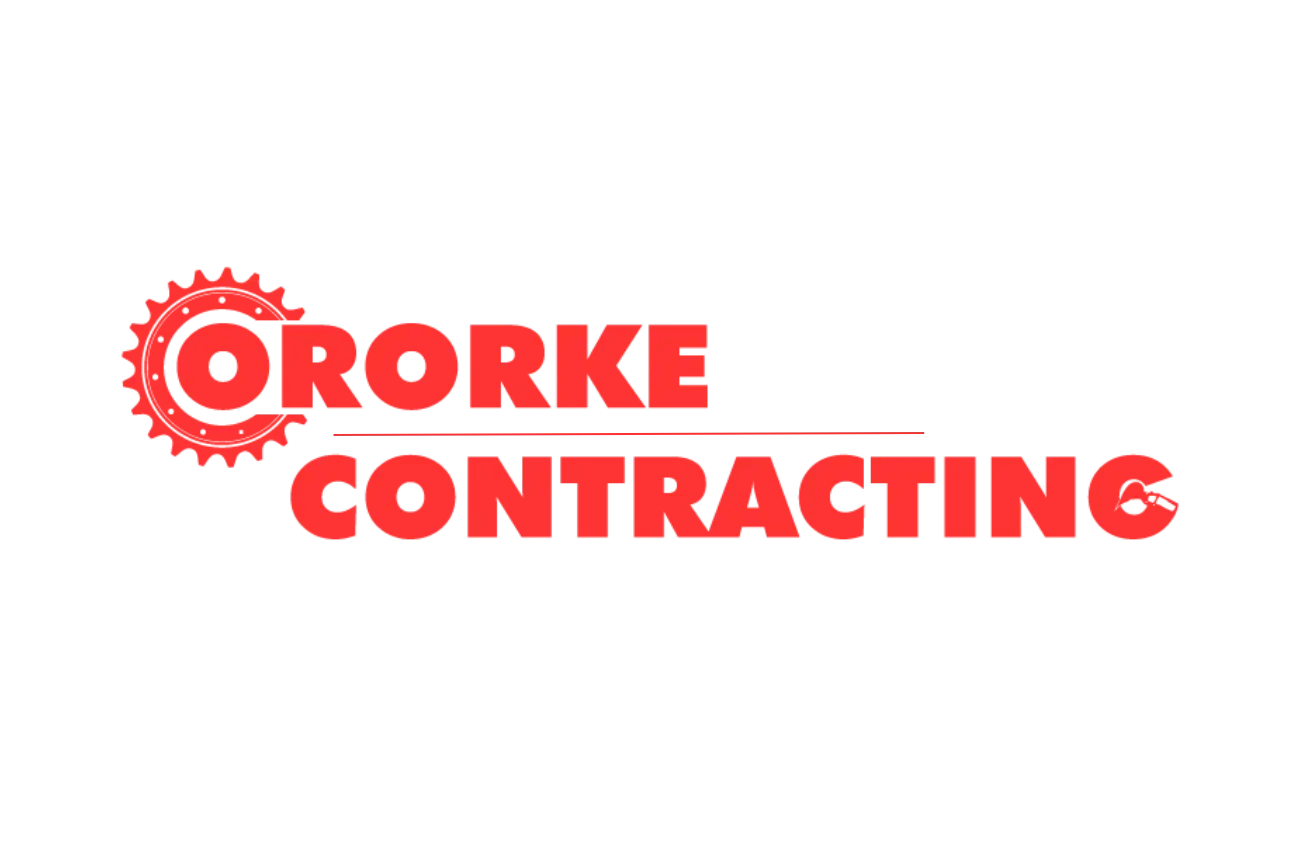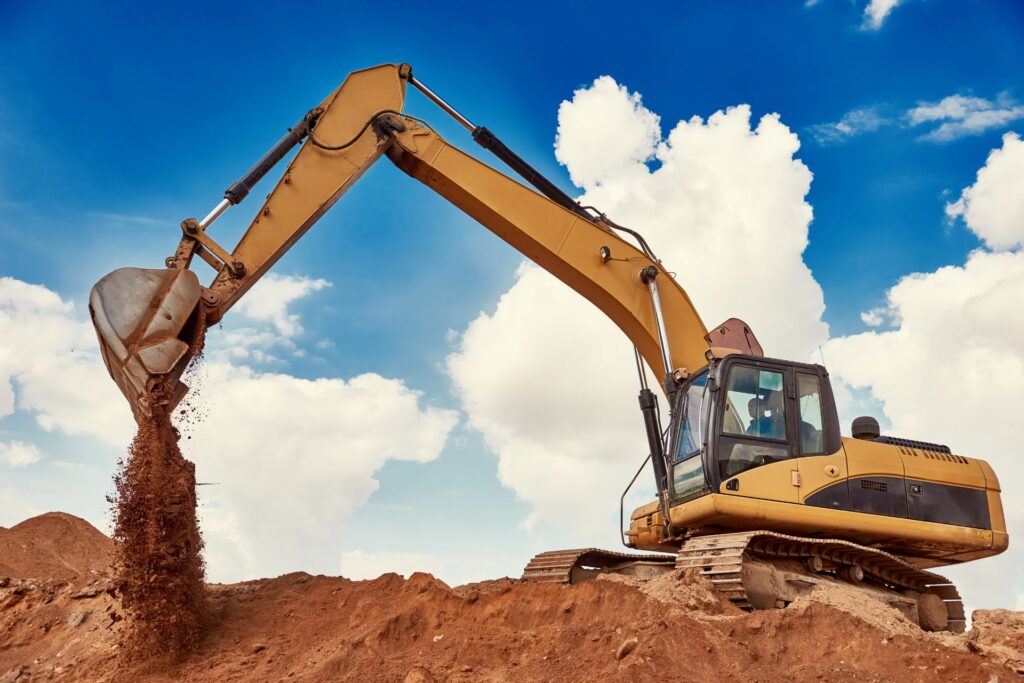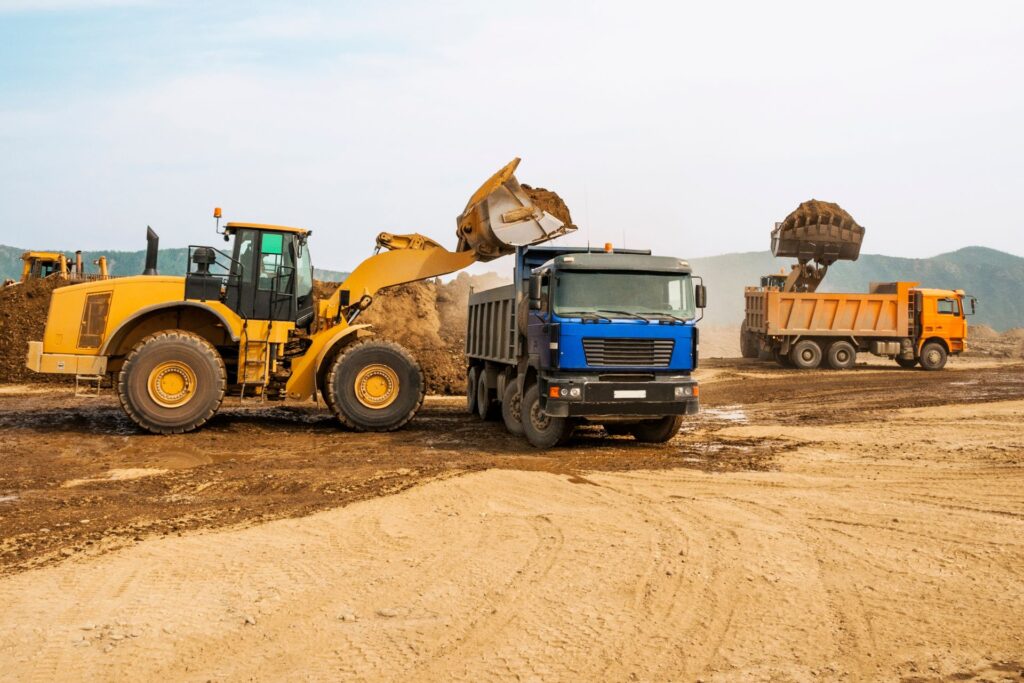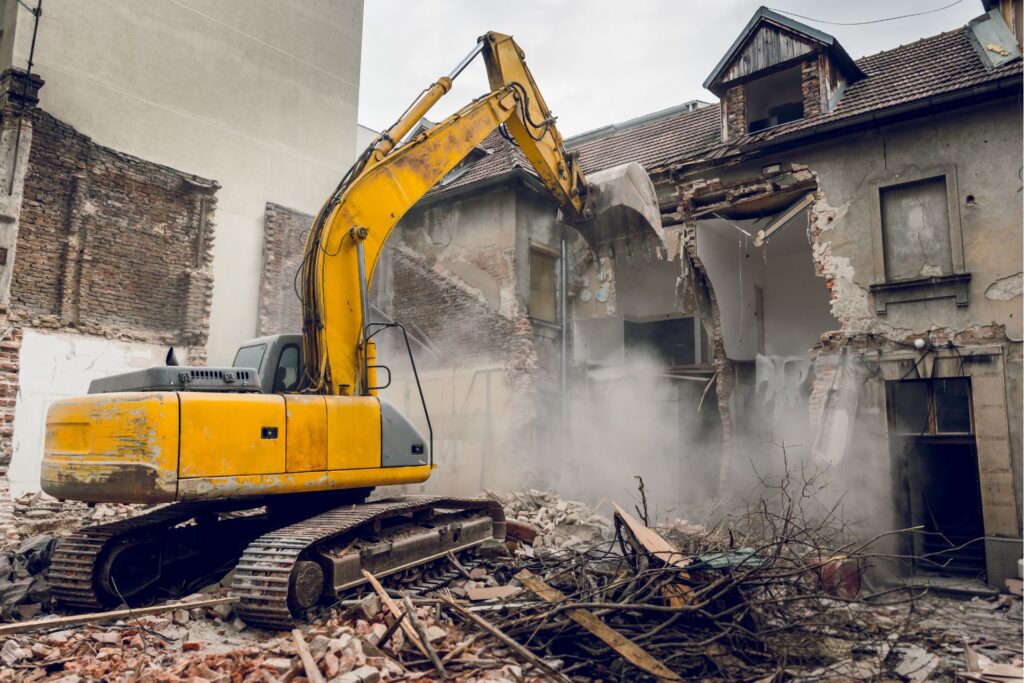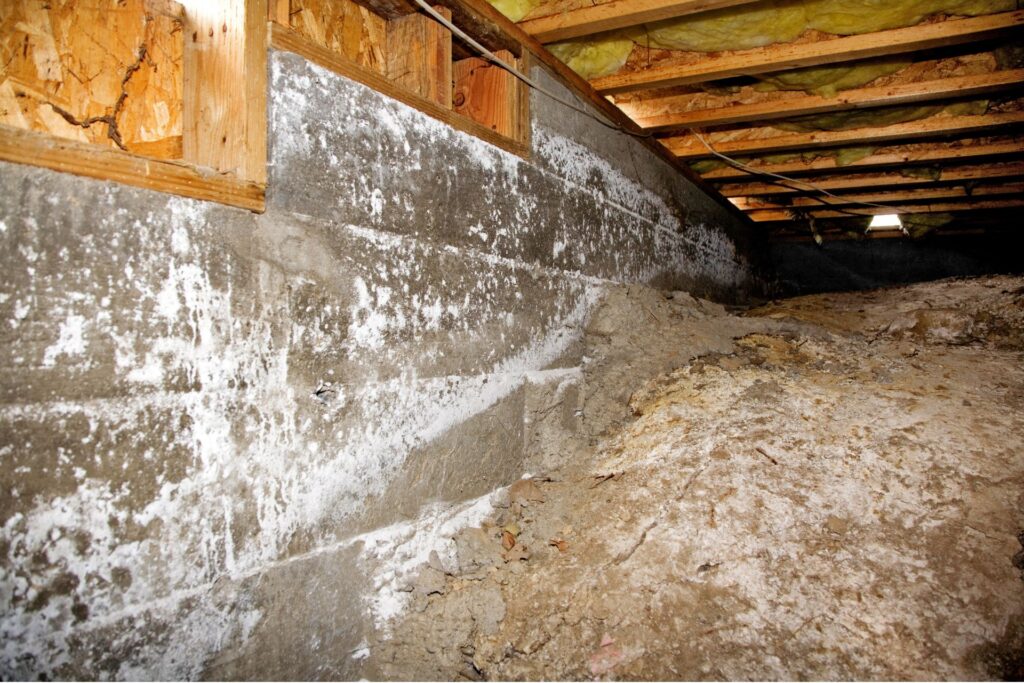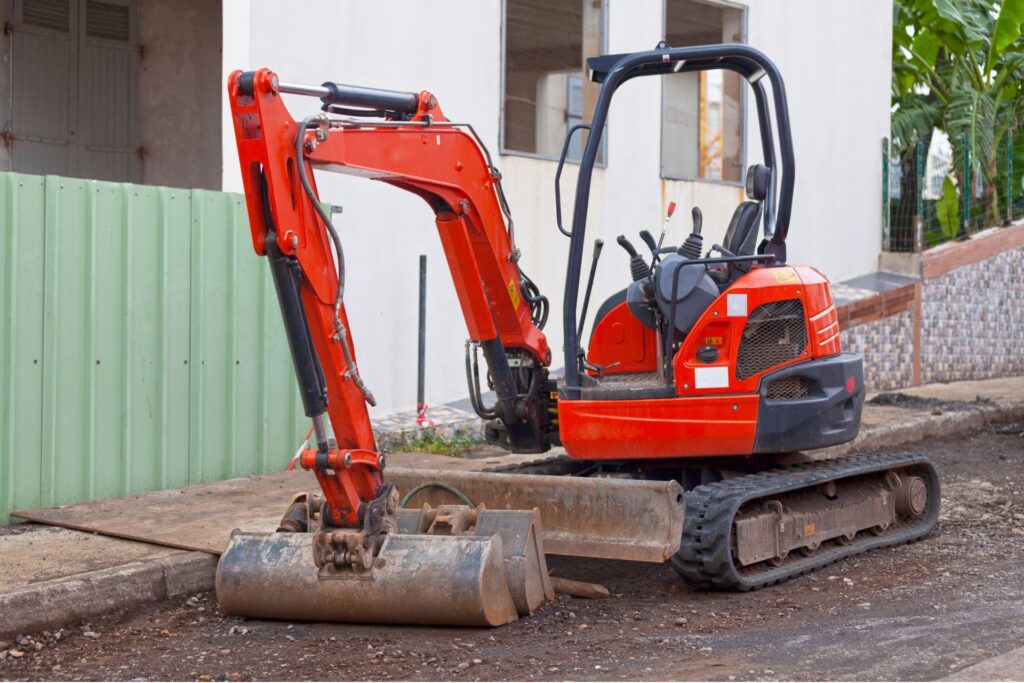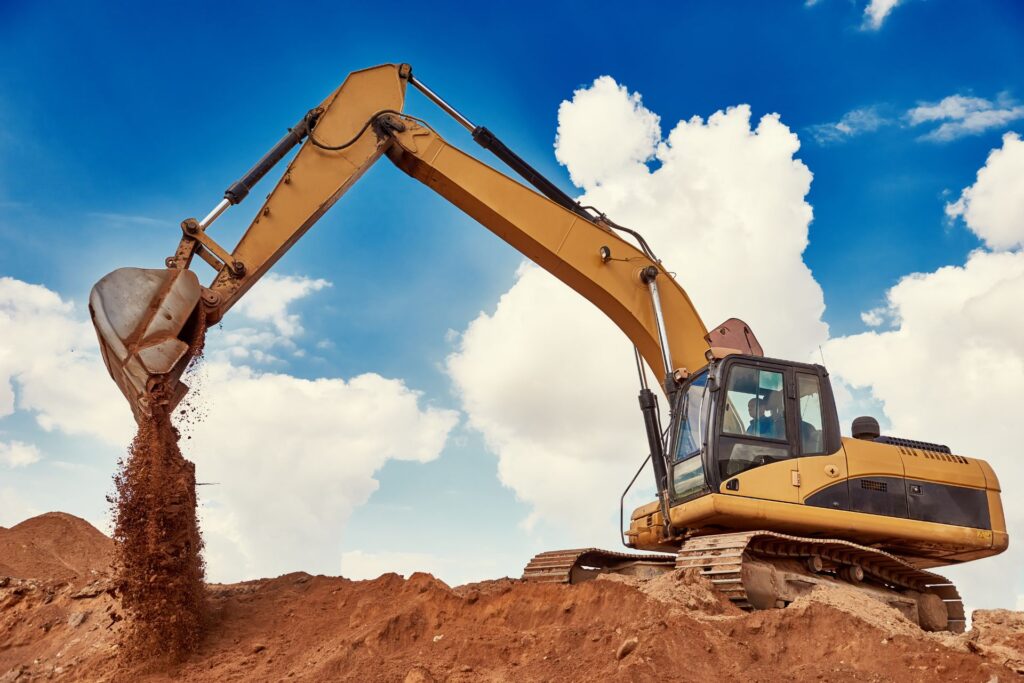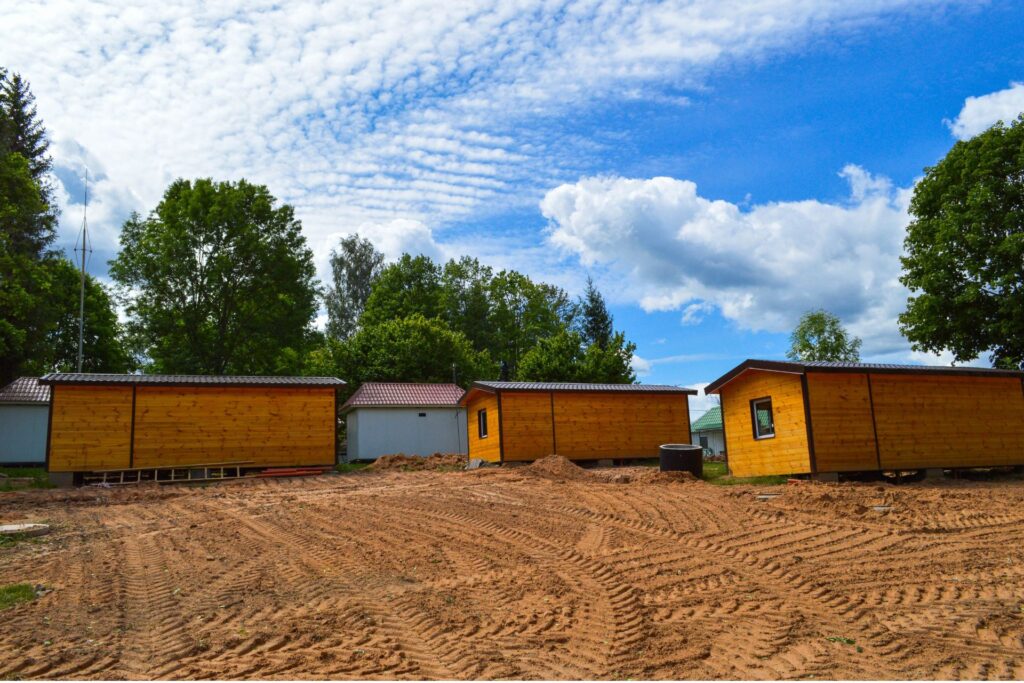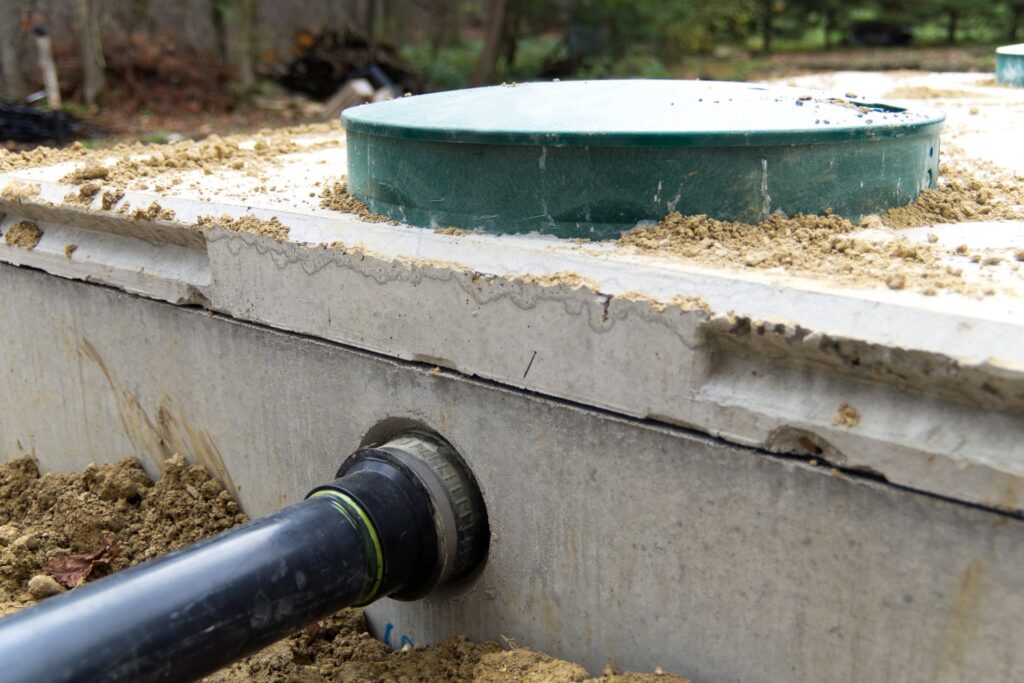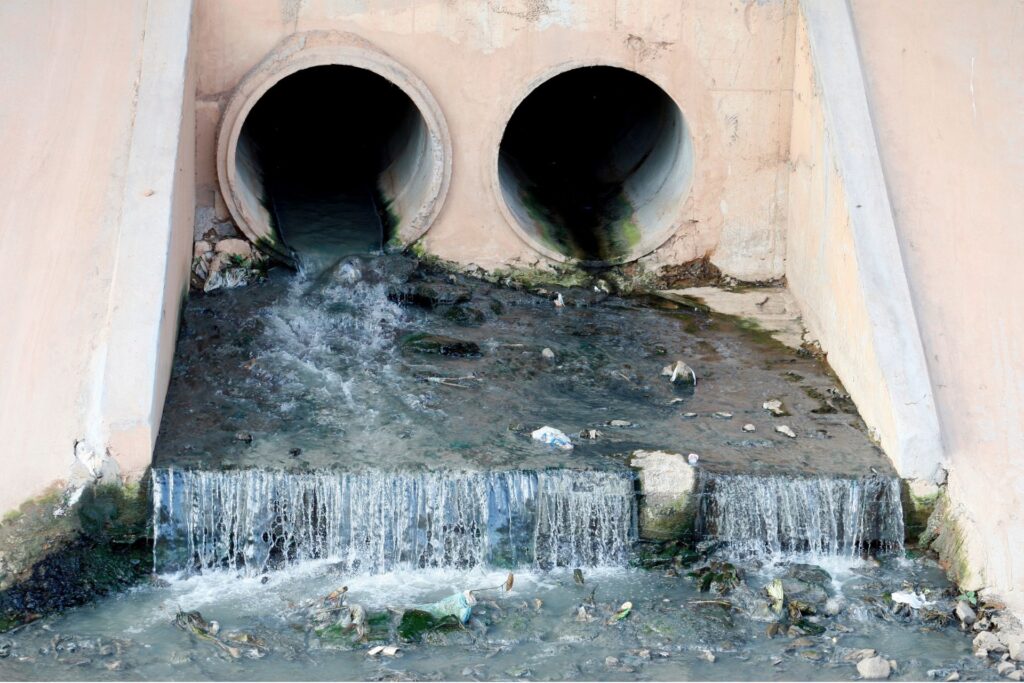Welcome to our comprehensive guide on understanding the cost of excavation services in New Zealand. Excavation is a crucial step in many construction and landscaping projects, whether you’re preparing a site for a new home, installing a swimming pool, or creating the foundation for a commercial building. The cost of these services can vary widely based on several factors, and it’s essential to have a clear understanding to plan your budget effectively. In this blog, we aim to demystify the various elements that influence excavation costs, provide practical tips for obtaining accurate quotes, and offer advice on how to manage your project efficiently to avoid unnecessary expenses. By the end, you’ll be equipped with the knowledge to make informed decisions and ensure your excavation project is both successful and cost-effective.
On average, the cost of excavation services in New Zealand ranges from $150 to $300 per hour, depending on factors such as project size, site conditions, depth and complexity of the excavation, and equipment and labor requirements. Additional expenses may include hauling and disposal of excavated materials and site preparation. To obtain accurate quotes, it is essential to contact multiple excavation contractors, request on-site assessments, and ask detailed questions about the scope of work and potential extra costs.
- What Are Excavation Services?
- Factors Affecting The Cost Of Excavation Services
- Breakdown Of Excavation Costs In NZ
- How To Get Accurate Excavation Quotes
- Tips For Reducing Excavation Costs
- Common Pitfalls To Avoid In Excavation Projects
- Benefits Of Investing In Quality Excavation Services
- FAQs: About Cost Of Excavation Services NZ
- Conclusion
What Are Excavation Services?
Definition and Types of Excavation Services
Excavation services refer to the various techniques and processes used to remove earth, rock, and other materials from a site to prepare it for construction or other projects. These services are essential in the early stages of construction, as they lay the groundwork for everything that follows. Let’s explore some of the main types of excavation services:
Site Preparation: This involves clearing the land of any trees, rocks, or debris and leveling the ground to create a stable base for construction. Site preparation ensures that the land is suitable for building and helps prevent future structural issues.
Trenching: Trenching is the process of digging narrow, long ditches used primarily for installing underground utilities such as water pipes, sewer lines, and electrical conduits. Proper trenching is crucial for ensuring these utilities are safely and correctly placed.
Grading: Grading involves shaping the land to ensure proper drainage and to create the desired landscape contours. This process is vital for preventing water accumulation, which can lead to erosion and structural damage.
Foundation Excavation: This type of excavation is specifically for creating a stable base for building foundations. It requires precise measurements and careful removal of soil to ensure the foundation will be level and secure.
Dredging: In areas near bodies of water, dredging is used to remove sediments and debris from the bottom to maintain navigable waterways or prepare for underwater construction.
Common Projects Requiring Excavation
Excavation services are a cornerstone of many construction projects, ranging from small residential undertakings to large-scale commercial and infrastructure developments. Here are some examples of projects that typically require excavation:
Residential Projects: Building a new home or adding extensions often requires site preparation, trenching for utilities, and foundation excavation. Landscaping projects, such as installing a swimming pool or creating garden features, also rely on excavation services.
Commercial Projects: Commercial construction projects, such as office buildings, shopping centers, and industrial facilities, need extensive excavation for site preparation, utility installation, and foundation work.
Infrastructure Projects: Large-scale infrastructure developments, including roads, bridges, and pipelines, depend heavily on excavation services. These projects often involve significant earthmoving and precise grading to ensure safety and functionality.
Brief Explanation of the Excavation Process
The excavation process is a systematic approach that ensures the land is properly prepared for construction. Here’s a brief overview of the typical steps involved:
1. Planning and Design: Before any physical work begins, detailed plans and designs are created to outline the excavation requirements. This includes determining the depth, area, and type of excavation needed.
2. Site Surveying: Surveyors assess the site to understand its topography and identify any potential challenges. This step is crucial for accurate planning and to ensure the excavation adheres to design specifications.
3. Clearing the Site: The site is cleared of any vegetation, debris, or obstacles that could hinder the excavation process. This may involve removing trees, rocks, and old structures.
4. Excavation: Using specialized machinery, such as excavators and bulldozers, the earth is carefully removed according to the planned design. Operators must follow precise measurements to achieve the required depth and shape.
5. Soil Testing and Stabilization: The excavated soil is often tested to determine its suitability for reuse or if it needs to be replaced. Stabilization techniques, such as compacting or adding materials, may be used to ensure a solid base.
6. Final Grading and Finishing: Once the main excavation is complete, the site is graded and leveled to the desired specifications. This step includes ensuring proper drainage and preparing the site for subsequent construction activities.
By understanding the various types of excavation services and the projects they support, you can appreciate the critical role excavation plays in the construction industry. Whether for residential, commercial, or infrastructure projects, proper excavation ensures a solid foundation and sets the stage for successful construction.

Factors Affecting The Cost Of Excavation Services
When planning an excavation project, it’s essential to understand the various factors that can influence the overall cost. Excavation is a complex process that requires careful consideration of several elements to ensure a successful and budget-friendly outcome. Here, we’ll delve into the key factors that affect the cost of excavation services.
Project Size and Scope
One of the primary determinants of excavation costs is the size and scope of the project. This factor can vary significantly between small residential projects and large commercial developments.
Small Residential Projects: These typically involve less ground to cover and less material to remove, which can make them more affordable. However, even within residential projects, costs can vary depending on the specifics, such as digging a swimming pool versus preparing a foundation for a house.
Large Commercial Projects: These require extensive planning, significant manpower, and heavy machinery. The scale of these projects often leads to higher costs due to the increased amount of soil to be excavated and the need for more sophisticated equipment and techniques.
Site Conditions
The conditions of the site where excavation is to take place play a crucial role in determining costs.
Soil Type and Condition: Different types of soil present varying levels of difficulty for excavation. For instance, sandy or loose soils are easier and less costly to excavate compared to rocky or clay-heavy soils, which may require more advanced equipment and additional labor.
Accessibility and Location: Sites that are difficult to access or located in remote areas can increase costs due to the extra effort and time required to transport machinery and workers to the location. Additionally, urban areas might have more stringent regulations and limited space, adding to the complexity and cost.
Depth and Complexity of Excavation
The depth and complexity of the excavation required can significantly impact costs.
Standard vs. Deep Excavation: Shallow excavations are generally less expensive than deep ones. Deep excavations often require additional safety measures, such as shoring or trench boxes, to prevent collapses, thereby increasing costs.
Presence of Obstacles: Excavating sites with obstacles like large rocks, roots, or underground utilities can be challenging and time-consuming. These obstacles necessitate specialized equipment and techniques, further driving up the costs.
Equipment and Labor Requirements
The type of equipment and the skilled labor needed for an excavation project are significant cost factors.
Types of Machinery Used: The choice of machinery depends on the project’s requirements. Standard projects only need basic excavators and bulldozers, while more complex jobs require specialized machineries like trenchers, backhoes, or compactors. The rental or operational costs of these machines contribute to the overall expenses.
Skilled Labor Costs: Skilled operators and laborers are essential for efficient and safe excavation. The cost of hiring experienced professionals can vary based on their expertise and the local labor market. Additionally, more complex projects that require a higher level of skill will naturally incur higher labor costs.
Permits and Regulations
Compliance with legal requirements and obtaining the necessary permits are critical aspects of any excavation project.
Necessary Permits for Excavation: Different regions have varying requirements for permits. The process of obtaining these permits can be time-consuming and costly, particularly if the project is in an area with stringent regulations.
Compliance with Local Regulations and Safety Standards: Ensuring that the excavation complies with local laws and safety standards is not only a legal obligation but also a factor that can affect costs. Non-compliance can lead to fines, project delays, and additional expenses to rectify any issues.
Understanding these factors and planning accordingly can help manage the costs of excavation services effectively. Whether it’s a small residential job or a large commercial project, being aware of what influences excavation expenses can aid in budgeting and achieving a successful project outcome.

Breakdown Of Excavation Costs In NZ
When planning an excavation project in New Zealand, understanding the various costs involved is crucial. Excavation costs can vary widely based on several factors, including the type of project, the complexity of the work, and additional services required. Here, we’ll break down the excavation costs into three main categories: base costs, additional expenses, and case studies with examples.
Base Costs
Average Hourly Rates for Excavation Services
The base cost for excavation services typically starts with the hourly rates charged by contractors. In New Zealand, the average hourly rate for excavation services ranges from $100 to $150. This rate can fluctuate based on the contractor’s experience, the equipment used, and the region. For instance, urban areas might have higher rates compared to rural regions due to higher operational costs and demand.
Typical Costs for Different Types of Excavation Projects
Different excavation projects come with varying price tags. Here are some typical costs associated with common types of excavation work:
Residential Foundation Excavation: Excavating a foundation for a standard residential property can cost between $2,000 and $8,000, depending on the size and complexity of the project.
Swimming Pool Excavation: The cost of excavating a swimming pool usually ranges from $4,000 to $15,000. Factors influencing this cost include the pool’s size, depth, and the type of soil.
Driveway or Road Excavation: For a driveway or a small road, excavation costs typically fall between $1,500 and $5,000, varying with the length and width of the path as well as the terrain.
Additional Expenses
Hauling and Disposal of Excavated Materials
Once the excavation is complete, there is usually a significant amount of soil and debris that needs to be hauled away. The cost for hauling and disposal can range from $300 to $1,200 per load, depending on the volume of material and the distance to the disposal site. This is a crucial cost to consider, as improper disposal can lead to environmental issues and potential fines.
Site Preparation and Cleanup
Site preparation before excavation and cleanup after the work are additional expenses that should not be overlooked. Preparing the site may involve tasks such as clearing vegetation, removing existing structures, and leveling the ground, which can add $500 to $2,000 to the total cost. Cleanup after excavation, including grading the site to ensure proper drainage and stability, can cost another $300 to $1,500.
Case Studies and Examples
Example Cost Estimates for Common Excavation Projects
To provide a clearer picture, let’s look at some specific examples of excavation projects and their associated costs:
Residential Foundation: For a typical residential foundation, if the project requires 50 hours of work at an average rate of $120 per hour, the labor cost alone would be $6,000. Adding $1,000 for hauling and disposal and $800 for site preparation and cleanup, the total cost could be around $7,800.
Swimming Pool Installation: Installing a swimming pool might require 80 hours of excavation work. At $120 per hour, the labor cost is $9,600. With an additional $1,500 for material hauling and disposal and $1,000 for site prep and cleanup, the total could reach approximately $12,100.
Driveway Excavation: For a driveway that requires 30 hours of excavation, the labor cost would be $3,600 (at $120 per hour). Adding $600 for hauling and disposal and $500 for site preparation, the total cost would be about $4,700.
These examples illustrate how various factors contribute to the overall cost of excavation projects. By understanding these components, you can better plan and budget for your excavation needs in New Zealand. Always consult with multiple contractors to get accurate quotes tailored to your specific project requirements.
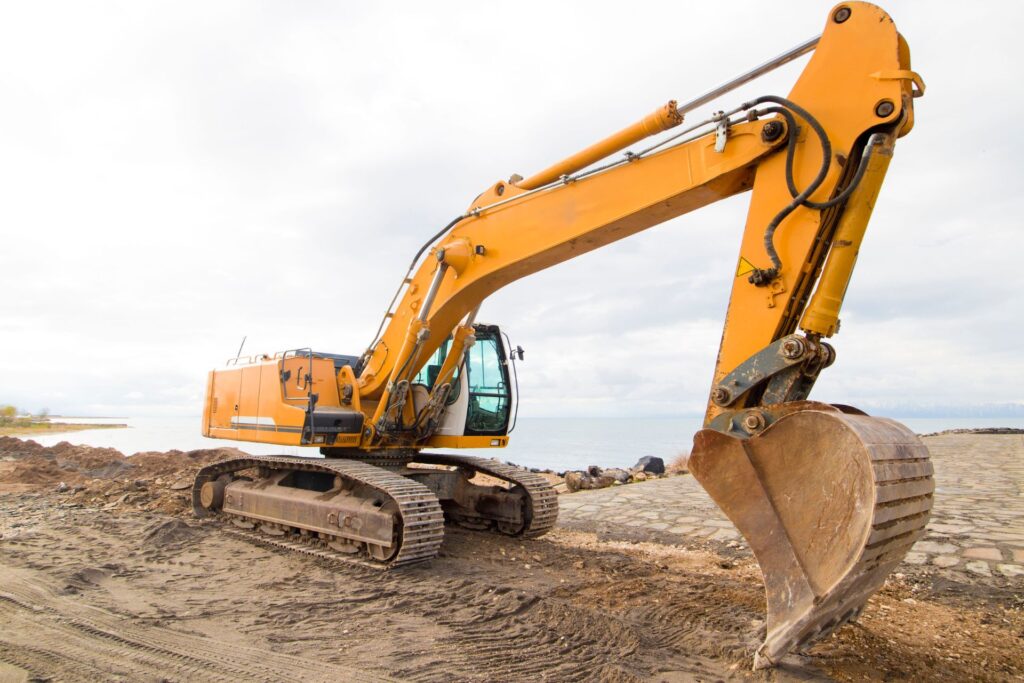
How To Get Accurate Excavation Quotes
Getting accurate excavation quotes is crucial for ensuring that your project stays within budget and is completed on time. Here’s a detailed guide to help you navigate the process.
Requesting Quotes
When you need excavation services, the first step is to gather quotes from different companies. Here’s how to go about it:
1. Research and Identify Potential Contractors: Start by researching local excavation companies. Look for those with positive reviews and a strong reputation. Personal recommendations from friends or family can also be valuable.
2. Contact Multiple Companies: Reach out to at least three to five companies to ensure you get a range of quotes. Provide each company with the same detailed information about your project so they can give you accurate estimates.
3. Provide Detailed Information: When requesting a quote, be specific about the scope of work. Include details such as the size of the area to be excavated, soil type, accessibility, and any potential obstacles.
4. Compare Quotes Thoroughly: Once you receive the quotes, don’t just look at the bottom line. Compare what each quote includes, such as labor, equipment, disposal of excavated materials, and any additional fees.
5. Check for Hidden Costs: Some quotes might appear cheaper initially but could have hidden costs. Make sure to ask each contractor to break down their quote into itemized components.
Site Visits and Assessments
An on-site assessment is critical for obtaining an accurate quote. Here’s why:
1. Assessing Site Conditions: Every excavation site is unique. A site visit allows contractors to assess factors like soil type, slope, and the presence of rocks or other obstacles that could impact the work.
2. Accurate Measurements: Contractors can take precise measurements during a site visit, ensuring their quote reflects the true scope of work. This helps avoid surprises once the project begins.
3. Identifying Potential Issues: By visiting the site, contractors can identify any potential problems that could affect the excavation process, such as underground utilities or drainage issues. Addressing these issues early can prevent costly delays.
4. Building a Relationship: A site visit also allows you to meet the contractors in person, ask questions, and gauge their professionalism and expertise. This can be invaluable in choosing the right company for your project.
Questions to Ask Excavation Contractors
To ensure you receive comprehensive and transparent quotes, it’s important to ask the right questions. Here are some key ones:
1. What’s Included in Your Quote?: Ask for a detailed breakdown of what’s included in the quote. This should cover labor, equipment, material disposal, and any additional costs.
2. What Experience Do You Have with Similar Projects?: Experience matters. Ensure the contractor has successfully completed projects similar to yours. Ask for references or to see examples of their previous work.
3. How Will You Handle Unexpected Issues?: Excavation projects can encounter unforeseen challenges. Ask how the contractor plans to deal with unexpected issues and how they will communicate these to you.
4. What’s Your Timeline?: Get a clear understanding of the project timeline. Ask when they can start, how long the excavation will take, and what factors might affect the schedule.
5. Are You Licensed and Insured?: It’s crucial that the contractor is licensed and insured. This protects you in case of accidents or damage during the excavation process.
6. What’s Your Payment Schedule?: Clarify the payment terms and schedule. Knowing when payments are due and the total cost breakdown will help you manage your budget effectively.
By following these steps and asking the right questions, you can ensure that you receive accurate and comprehensive excavation quotes, setting your project up for success.

Tips For Reducing Excavation Costs
Excavation can be a significant expense in any construction project, but with careful planning and strategic decisions, it’s possible to reduce these costs effectively. Here are some valuable tips to help you minimize your excavation expenses.
Planning and Preparation
Early Planning and Site Assessment
One of the most effective ways to reduce excavation costs is through thorough early planning and site assessment. By understanding the specific needs of your site before breaking ground, you can avoid unexpected surprises that often lead to additional costs. Conduct a detailed site survey to identify potential obstacles, such as underground utilities, rocks, or water tables. This allows you to plan your excavation strategy more accurately and avoid costly delays and modifications.
Choosing the Right Contractor
Selecting Experienced and Reputable Excavation Contractors
Hiring the right contractor is crucial for keeping excavation costs under control. Experienced and reputable contractors bring expertise and efficiency to the table, ensuring that the job is done right the first time. Take the time to research and compare different contractors. Look for those with a solid track record, good reviews, and proper licensing and insurance. A reliable contractor can provide accurate quotes, help identify cost-saving opportunities, and avoid common pitfalls that lead to budget overruns.
Efficient Project Management
Coordinating Excavation with Other Construction Activities
Efficient project management can significantly impact excavation costs. Coordinating excavation with other construction activities can help streamline the process and reduce downtime. For instance, scheduling excavation to align with the delivery of materials or other site preparations can prevent delays and reduce the overall project timeline. Effective communication and planning among all parties involved ensure that the excavation process fits seamlessly into the broader construction schedule, minimizing wasted time and resources.
DIY vs. Professional Services
When It Makes Sense to Do Some Prep Work Yourself
Deciding between DIY and professional services can also influence excavation costs. While hiring professionals is often necessary for complex tasks, there are instances where doing some prep work yourself can save money. Simple tasks like clearing vegetation or marking out boundaries can be handled by the property owner, reducing the amount of work needed from the excavation team. However, it’s essential to know your limits; attempting tasks beyond your expertise can lead to mistakes that might end up costing more to fix. Evaluate the scope of work realistically and only take on tasks that you are confident you can complete safely and effectively.
By implementing these tips, you can manage and reduce your excavation costs, ensuring a smoother and more cost-effective construction project. Planning and preparation, choosing the right contractor, efficient project management, and balancing DIY efforts with professional services are all critical components of a successful excavation strategy.

Common Pitfalls To Avoid In Excavation Projects
When embarking on an excavation project, it’s crucial to be aware of potential pitfalls that could derail your progress. By understanding these common challenges and how to address them, you can ensure a smoother and more successful excavation process. Here, we delve into some of the most frequent issues encountered and offer practical advice on how to navigate them.
Unforeseen Challenges
Excavation projects often encounter unexpected issues, such as buried utilities or adverse weather conditions, which can cause significant delays and additional costs.
1. Buried Utilities: Discovering hidden pipes, cables, or other utilities can halt your project and necessitate immediate action to avoid damage. It’s essential to conduct thorough site surveys and utility checks before breaking ground. Utilize services like ground-penetrating radar or consult local utility companies to map out what’s beneath the surface. Having a contingency plan in place for such discoveries can save time and money.
2. Adverse Weather: Weather conditions can significantly impact excavation timelines. Heavy rain, snow, or extreme temperatures can create unsafe working conditions or make the site difficult to navigate. To mitigate this, schedule your project during seasons with predictable weather patterns, and always have a backup plan. Investing in weather-resistant materials and equipment can also help keep the project on track despite unexpected weather changes.
Budget Overruns
One of the most common pitfalls in excavation projects is budget overruns. These can occur due to a variety of reasons, including unanticipated complications, poor planning, or fluctuating material costs.
1. Detailed Planning: To avoid exceeding your budget, start with a detailed project plan that includes a realistic budget. Break down costs for labor, equipment, permits, and unexpected expenses. It’s wise to include a buffer for contingencies – typically around 10-15% of the total budget.
2. Regular Monitoring: Throughout the project, keep a close eye on expenditures. Use project management software to track costs in real time and adjust your plans as needed. Regularly compare actual spending against your budget and identify any deviations early on.
3. Cost-Saving Strategies: Implement cost-saving measures such as bulk purchasing of materials, renting rather than buying equipment, and efficient workforce management. Negotiating with suppliers for better rates and opting for cost-effective yet high-quality materials can also help you stay within budget.
Regulatory Compliance
Adhering to local regulations and obtaining the necessary permits are crucial for the legal and safe completion of your excavation project.
1. Research and Permits: Before starting any excavation work, research the regulatory requirements for your area. This may include zoning laws, environmental regulations, and specific excavation permits. Failure to comply with these can result in hefty fines and project delays.
2. Safety Measures: Ensure that your project complies with all safety regulations. This involves providing proper training for your team, using appropriate safety gear, and implementing measures to protect both workers and the public. Regular safety audits and inspections can help identify potential hazards and address them promptly.
3. Documentation: Keep detailed records of all permits, inspections, and regulatory communications. This not only ensures compliance but also provides a clear audit trail in case of disputes or reviews.
By proactively addressing these common pitfalls, you can significantly improve the likelihood of completing your excavation project on time, within budget, and in compliance with all relevant regulations. Planning, vigilance, and flexibility are key to navigating the complexities of excavation and achieving successful outcomes.

Benefits Of Investing In Quality Excavation Services
Investing in quality excavation services is a crucial decision that can significantly impact the success of your construction project. Here are the key benefits you can expect:
Long-term Cost Savings
One of the primary benefits of quality excavation is the potential for long-term cost savings. Proper excavation sets the foundation for your entire project, literally and figuratively. When excavation is done correctly, it helps avoid future issues that can arise from poor groundwork. For instance, inadequate excavation can lead to problems like soil erosion, water pooling, and even structural damage. These issues can be costly to fix and can delay your project significantly. By investing in quality excavation services, you ensure that the groundwork is done right the first time, preventing costly repairs and modifications in the future.
Project Success
A successful construction project relies heavily on a strong foundation. Quality excavation services ensure that your site is properly prepared, which is critical for the stability and longevity of the structure you are building. Whether it’s a residential home, commercial building, or infrastructure project, proper excavation ensures that the ground is stable and ready to support your construction. This not only helps in the smooth progression of your project but also contributes to the overall success and durability of the finished structure. With a strong foundation, you can be confident that your construction will withstand the test of time and environmental factors.
Safety and Compliance
Safety and compliance are paramount in any construction project. Quality excavation services adhere to strict safety standards and regulations, ensuring that your project site is safe for workers and compliant with local building codes. Proper excavation minimizes risks such as landslides, cave-ins, and other hazardous conditions that can occur during construction. Additionally, adhering to safety and regulatory standards can prevent legal issues and fines that might arise from non-compliance. By choosing experienced and reputable excavation professionals, you can ensure that all safety protocols are followed, creating a safer work environment and a more reliable outcome for your project.
Investing in quality excavation services is not just about getting the job done; it’s about doing it right, ensuring long-term benefits, project success, and adherence to safety standards. These factors collectively contribute to a smoother, more efficient construction process and a more robust final product.
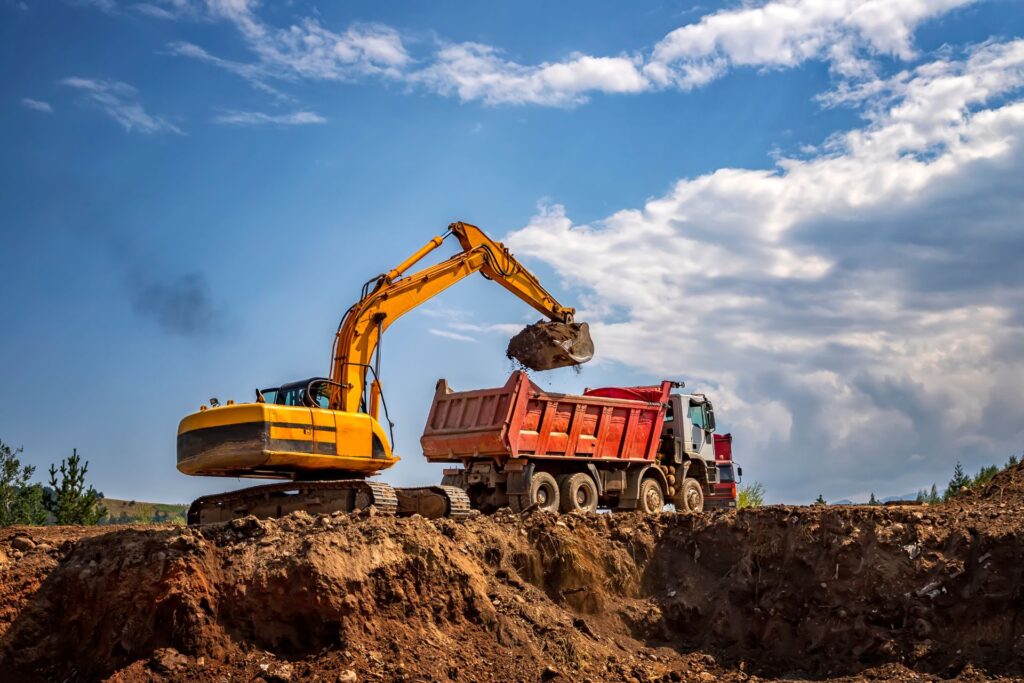
FAQs: About Cost Of Excavation Services NZ
The cost of excavation services in New Zealand is influenced by several factors including the size and scope of the project, site conditions, depth and complexity of the excavation, equipment and labor requirements, and necessary permits and regulations.
On average, excavation services in New Zealand cost between $150 and $300 per hour. Additional expenses may include hauling and disposal of excavated materials and site preparation.
The type of soil affects the ease of excavation. Rocky or clay-heavy soils can be more challenging and time-consuming to excavate, leading to higher costs. Softer soils are generally easier and less expensive to excavate.
Yes, most excavation projects in New Zealand require permits. The specific permits needed depend on the project’s scope and location. It’s essential to check with local authorities and ensure all necessary permits are obtained to avoid legal issues and additional costs.
To get an accurate quote, contact multiple excavation contractors, request on-site assessments, and ask detailed questions about the scope of work and potential extra costs. Providing as much information as possible about your project will help contractors give a more precise estimate.
In addition to the base cost of excavation, you may incur additional expenses for hauling and disposing of excavated materials, site preparation, and any unforeseen challenges such as dealing with buried utilities or adverse weather conditions.
You can reduce costs by planning and preparing early, choosing the right contractor, coordinating excavation with other construction activities, and considering doing some preliminary work yourself if feasible. Efficient project management and clear communication with your contractor can also help avoid unnecessary expenses.
When choosing an excavation contractor, look for experience, reputation, and reviews from previous clients. Ensure the contractor is licensed and insured, and ask for detailed quotes and timelines. It’s also beneficial to select a contractor who communicates well and understands your project’s specific needs.
Common pitfalls include not obtaining necessary permits, failing to plan for unforeseen challenges, exceeding the budget due to lack of detailed quotes, and choosing inexperienced contractors. Proper planning, thorough research, and clear communication can help avoid these issues.
Investing in quality excavation services ensures that your project has a strong foundation, complies with safety standards and regulations, and avoids future issues that can arise from poor-quality work. Quality services can save you time and money in the long run by preventing problems and ensuring the success of your project.
Conclusion
In conclusion, understanding excavation costs is crucial for any construction project. This discussion covered key aspects such as factors influencing costs, the types of excavation services available, and the importance of accurate site assessment. Recognizing the significance of these factors can help you plan better and avoid unexpected expenses. It’s essential to acknowledge that excavation is a specialized field, and professional advice can provide more precise estimates tailored to your specific needs. By consulting with experts and obtaining detailed quotes, you can ensure that your project stays on budget and proceeds smoothly. Taking the time to understand excavation costs upfront can save you time, money, and potential headaches down the road.
About the Author:
Mike Veail is a recognized digital marketing expert with over 6 years of experience in helping tradespeople and small businesses thrive online. A former quantity surveyor, Mike combines deep industry knowledge with hands-on expertise in SEO and Google Ads. His marketing strategies are tailored to the specific needs of the trades sector, helping businesses increase visibility and generate more leads through proven, ethical methods.
Mike has successfully partnered with numerous companies, establishing a track record of delivering measurable results. His work has been featured across various platforms that showcase his expertise in lead generation and online marketing for the trades sector.
Learn more about Mike's experience and services at https://theleadguy.online or follow him on social media:
